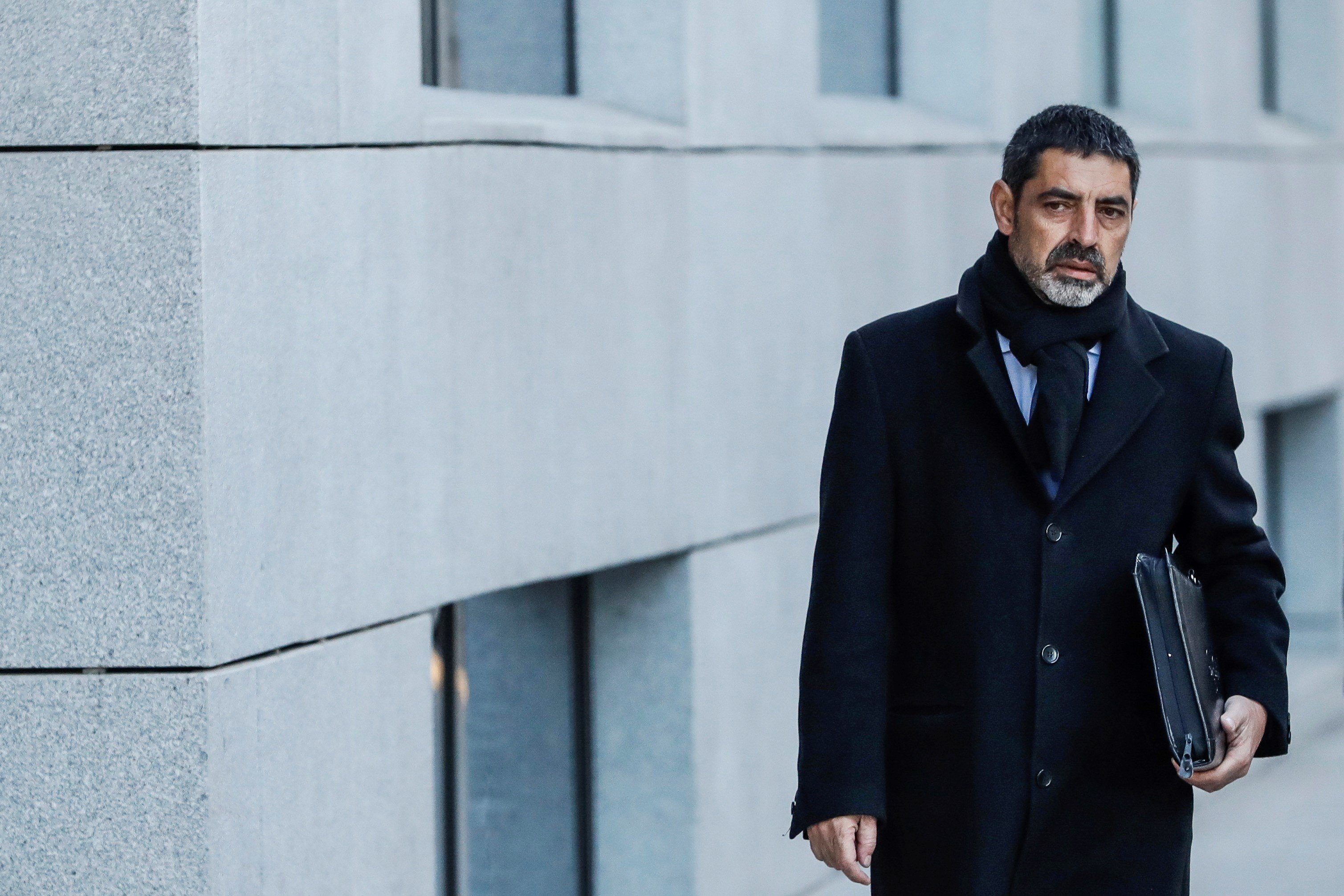Spanish public prosecutors now accuse the former chief of Catalonia's Mossos police, Josep Lluís Trapero, of a crime of rebellion for his participation in the independence process and have demanded that the court impose an 11 year prison sentence on him. Similar sentences for rebellion are also sought for two other senior figures in the Mossos d'Esquadra hierarchy: César Puig and Pere Soler. The prosecutors are thus calling for the leadership of the Catalan police force to face even more serous charges than suggested by judge Carmen Lamela of the National Audience court.
Judge Lamela had decided to send Trapero for trial on two counts of sedition and one of belonging to a criminal organization for having consented to the holding of the 1st October referendum and failing to stop the "siege" of the Catalan economy ministry on 20th and 21st September 2017. He is now also accused of "giving effective coverage" to the pro-independence leaders so that they could "impose, by the force of the masses, rights that they do not have" and of "giving support to the effectiveness of the openly-unconstitutional rules emanating from the Catalan Parliament and government".
The public prosecutors' indictment today also calls for 11 years of prison for rebellion for former Mossos director Pere Soler and for the former general secretary of the Catalan interior ministry César Puig, second-in-command of the interior ministry below Joaquim Forn, while for Mossos superintendent Teresa Laplana, the indictment seeks four years of prison for sedition.
The fiscal lieutenant of the National Audience, Miguel Ángel Carballo, and the public prosecutor of that court, Pedro Rubira, consider that Trapero, Soler and Puig committed an offence of rebellion related to the part of the law that refers to "declaring the independence of a part of the national territory".
They did so not as 'leaders' (which would entail a sentence of 15-25 years of prison) but as "subordinate leaders", which implies sentences of between 10 and 15 years. Specifically, the public prosecutors are asking for 11 years prison for the three, and the same period of disqualification from holding office.
In the case of Laplana they consider that she committed a crime of sedition, but not as a principle author (which would mean a sentence of up to 15 years), rather in a subordinate role, punishable with sentences of four to eight years jail.
Accused of helping "to carry out the secessionist plan"
The prosecutors believe that in the months of September and October 2017, in the areas of competency of the accused, they constituted "a key element for preventing or severely hampering compliance with the orders emanating from the courts of justice".
They assert that the police administrators acted as they did "in order to carry out the secessionist plan devised jointly with the highest figures in the Catalan government and Parliament, as well as with the leaders of the parliamentary groups and the secessionist associations".
Trapero's defence lawyer, Olga Tubau, has told Catalonia's TV3 that "it was very difficult that the rest of those accused faced charges of rebellion, while Trapero was only charged with sedition". However, she declared that there is "a great amount of incoherence" in the case.
Tubau says that they "are mounting a defence against accusations that do are not based on the reality of what happened" and that "reality is being interpreted at the same time as they are disregarding material that we have presented". The lawyer asserts that it cannot be sustained that Trapero put the Mossos at the disposal of the Catalan government because "this is to disregard elements of the investigation that demonstrate the contrary". Moreover, Tubau recalls that the Mossos chief "publicly stated that the police body would always obey the valid legality and would be at the orders of judges and public prosecutors".

